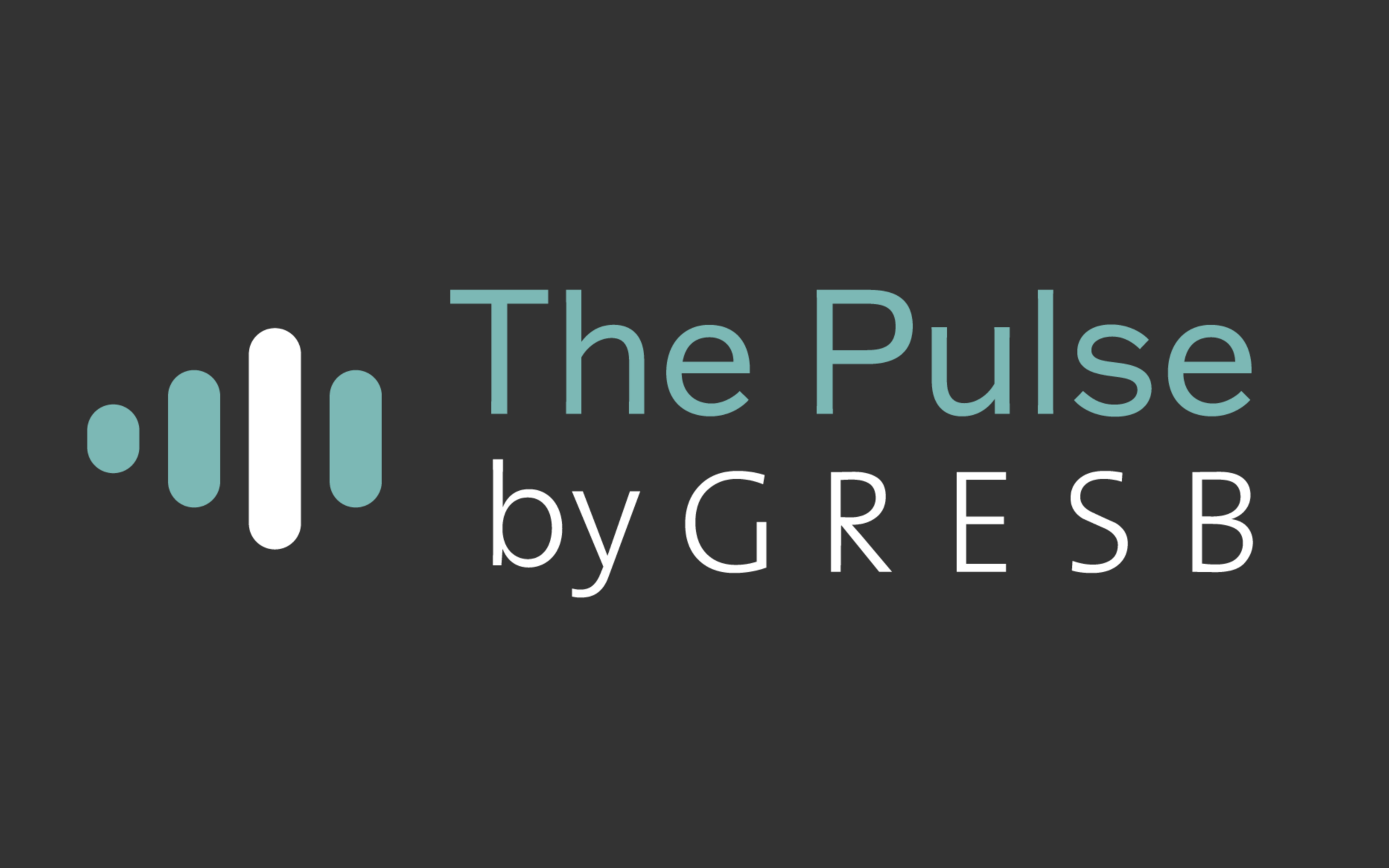
Introducing The Pulse by GRESB
The Pulse by GRESB is an insightful content series featuring the GRESB team, partners, GRESB Foundation members, and other experts. Each episode focuses on an important topic related to either GRESB, ESG issues within real assets industry, decarbonization efforts, or the wider market.
- Watch on Youtube
- Listen on Spotify
- Listen on Apple Podcasts
Road to ’24: What’s left to prepare for GRESB participation?
For this episode of The Pulse by GRESB, we are bringing you a conversation about preparing for the GRESB Assessments in 2024. Our experts this week discuss the current state of sustainability reporting in the real estate industry, especially regarding changes in reporting requirements, challenges faced by GRESB Participants, and how GRESB participation can help prepare organizations with upcoming regulatory requirements related to sustainability and climate disclosures.
Watch the episode below, featuring:
Transcript
Can’t listen? Read the full transcript below. Please note that edits have been made for readability.
Tom Idzal: Good day, everybody, and welcome to The Pulse by GRESB. My name is Tom Idzal, Head of Americas for GRESB. I’m here with my two colleagues, Paul Vozzella and Robert Slowko. We’re thrilled to have you to talk a little bit about what’s happening in the world of real estate investment and real estate management, certainly through the eyes of GRESB. Why don’t I let my colleagues introduce themselves, Paul?
Paul Vozzella: Yes, thanks, Tom. So this is Paul Vozzella. I focus on the East region for GRESB, bringing on new Participants, but then also working with a lot of the Investor Members to become members and engage with the Participants.
Tom Idzal: Great. Thanks, Paul. Welcome. Robert, over to you.
Robert Slowko: Hi Tom. Hi Paul. Hi everyone. My name is Robert Slowko. I manage the Western U.S., Western Canada, and the entire Latin American region. And I do so for the new Participants for GRESB, but also for the Investor Members of GRESB. I’ve been with GRESB for about two years, all together in the sustainability space [for] ten years.
Tom Idzal: Fantastic. Welcome, Robert. Thanks. So, guys, we want to talk a little bit about where we are at this moment, if you will, in the year. And that year can be either a calendar year or a reporting year, however you want to define it. But, the whole idea behind sustainability [and] sustainability reporting tends to have an annual cadence.
And I think it’s useful for us to take stock for a moment of where we are on the road for each individual [GRESB] Participant in submitting and disclosing their sustainability progress over the last year. So, you both are very close to all parties involved in that. So, I’d love to get your sense of what’s happening in the market here in 2024. Paul, let’s start off with you. So, you talk with a lot of folks and listen to what’s going on. What’s your sense? What are managers — maybe real estate managers and owner-operators — what are they thinking about right now, and what’s most in front of them?
Paul Vozzella: Yes, so I think from a GRESB standpoint, a lot of them are looking through the 2024 changes, right? Although they haven’t been participating in GRESB in prior years, they were following along with how the Foundation Board and the Standards Committee were evolving the Standard and the Benchmark year over year. So, a lot of them are understanding what those changes are, how they should think about data collection, looking at the policies they have in place, and how those are going to appease or fall in line with the new changes. They’re also really focusing on centralizing and doing a lot of housekeeping around the policies and evidence that they have in place to report to GRESB. So, for them, it’s really facilitating a lot of stakeholder collaboration with their property managers, with their asset managers, with their tenants to collect a lot of the data, but then also a lot of documents they need to report to GRESB. And then lastly, [it] would just be asset-level data, right? So, a lot of them are looking at the asset-level data they have, looking back to 2023 and where there are gaps, and how they can improve on that asset-level data collection strategy when they go to report on April 1.
Tom Idzal: Got it. Okay, so I heard you say three things there. I want to just quickly follow up with you on the first one. You talk about understanding the changes. What’s your sense this year about the changes that managers are facing that are asking them for information or disclosure beyond what was asked previously? Are you getting a sense from the market [that] those changes are really significant and monumental for them? Or do you get the sense most are taking it in stride and are fully expecting to be able to handle those?
Paul Vozzella: Yes, I think as a first-year participant, looking at the GRESB Assessment as a whole can feel a little bit [like]: “Okay, where should we focus and where should we put our attention?” But, I think with the rollout of the 2024 changes, the focus has obviously been on building certification age and expiration, but then also net zero carbon targets. So, those are two areas [where] we’ve implemented some changes and for where net zero carbon targets are now going to be scored. So, I would say those two areas are two aspects or indicators that are on the minds of new [GRESB] Participants as they’re going into the reporting cycle in April.
Tom Idzal: Excellent. Thanks, Paul. I’ll come back to you in a minute, but I want to get Robert involved here. So, Robert, you, similar to Paul, you’re out there. You’re talking to managers. You’re talking to investors. And I assume that there’s a lot on these people’s plates, right? They’ve got a lot more to do than just disclose sustainability progress and journey and so forth. And it probably feels like they’re always a little bit swimming upstream. So, I guess I’m wondering, do you sense in the market people are always feeling a little bit behind? [That] there’s a lot more to do than there’s time to do it? And if so, what do you say to those folks? How do you help them deal with the feeling like there’s always more to do than there is time to do it, especially around disclosure and reporting a framework like GRESB?
Robert Slowko: Absolutely, Tom. I’d say time is a precious resource, as we all know. So, in Q1 of each year, when we look at the GRESB cycle, to your point, absolutely, they have some other things on their plate. What I’m hearing from the market [is that] there’s a lot of regulatory pressure. People feel that they have to gear themselves up for the upcoming looming regulation related to climate disclosures, [and] related to emissions disclosures. And sometimes they feel spread thin, [pondering] whether they should concentrate on GRESB or these types of aspects.
And what I’m telling them is that really there’s no contradiction. GRESB is the most comprehensive assessment when it comes to ESG, specifically for real estate. And it includes all this information, in fact, that they need for compliance with various regulatory schemes. We also help with, actually, some reporting.
So, yes, GRESB is a big commitment. Yes, they have some other things on their mind, but at the same time, doing GRESB helps them in various other aspects that they’re concerned about. And I would say: “What’s on people’s minds?” [For] those that seriously think about GRESB, it’s about commitment. This is the time to make a commitment. Q1 is for this purpose. The sooner they’re going to make that commitment, the better it’s going to be. But, the successful ones, they commit fast. They try to commit as fast as possible because then they can set their mind on other things to do that are necessary to be successful at GRESB.
Tom Idzal: That’s great, Robert. Thanks so much. Yes, I think commitment, making the first step, is always the hardest thing to do. Robert, let me just follow up with you quickly. You talk a lot about upcoming regulations and this idea [that] “I have to do that and have to do this.” So, just help me understand and maybe help our listeners understand a little bit in what ways, just maybe one or two ways, does participating in GRESB help prepare perhaps a [GRESB] Participant for other regulations? And in what way, like you said, are they not in contradiction with another?
Robert Slowko: Yes. In the U.S., we have some regional regulations that are coming out. I guess the [most] stringent one that we can expect is coming out of California. There are two bills that are going to come into force in 2026 that are going to cover the 2025 calendar year. We also have the local regulation in Denver, in Colorado.
All these regulations pertain to climate-related risks and to emissions; in some cases, the energy efficiency. The SEC regulation, the ruling that’s been in consultation for quite a long time, is going to focus on climate-related risk and emissions. Typically, the SEC regulates, obviously, the listed market. So, it’s going to be for the listed [GRESB] Participants. But, as we know from the previous instances of any type of SEC or federal [or] national regulation, it’s going to trickle down to the entire value chain. As I said, GRESB, with its comprehensiveness, we identify the emissions. We identify the energy efficiencies. We score these measures. We also provide our Participants with the opportunity to utilize our resources on TCFD. For those that are not familiar with this mouthful acronym, [it stands for] the Task Force on Climate-Related Financial Disclosures, which is going to help quite a few with any type of climate-related risk, exposure, [or] disclosures to the investors and to the regulators. So, there’s a lot in GRESB, in the exercise, in the information collection, in the organization of that information and data to be able to comply with all these regulations.
Tom Idzal: Great. Thanks Robert. Thanks so much. That’s interesting. Again, I know for many of our folks in our industry, it just feels like everything is new and piled on top of the old. But, maybe they’re not in contradiction as much as we might think. Paul, just coming back to you for one last quick comment.
When you’re out there talking to managers and the like, tell me just a little bit about maybe their number one concern about committing to doing another disclosure or another type of framework like GRESB. What’s the number one thing you hear most?
Paul Vozzella: Resources. I think Robert might have highlighted this, but it’s [about]: “Okay, how are we going to take on another benchmark and standard and assessment and framework to report to?” And that’s really where it comes down to the stakeholder collaboration. And that’s internal folks — those who are in legal and compliance, right? And if you’re a vertically integrated firm, your property managers. But then external, right? So a lot of these folks are resource-constrained, but it’s [about] getting in front of these things now to engage with a lot of the stakeholders and those involved in GRESB reporting so that everyone can be prepared for reporting come April 1. So, as I was saying before, it’s really about the organization and centralization of documents and the policies that you have to feel prepared come April 1 and not feel like you’re going into it being pulled in a bunch of different directions.
Tom Idzal: Great. Well, Robert Slowko, thank you very much from Denver. Paul Vozzella, from the East Coast, thank you very much. And thank you to all our listeners. Hopefully, over the last ten minutes or so, you felt the pulse of what’s going on with real estate investors, [and] real estate managers right now as disclosure season heats up. Thank you for listening. Come back, as we’ll be putting more episodes of The Pulse by GRESB out regularly. Have a great day.


